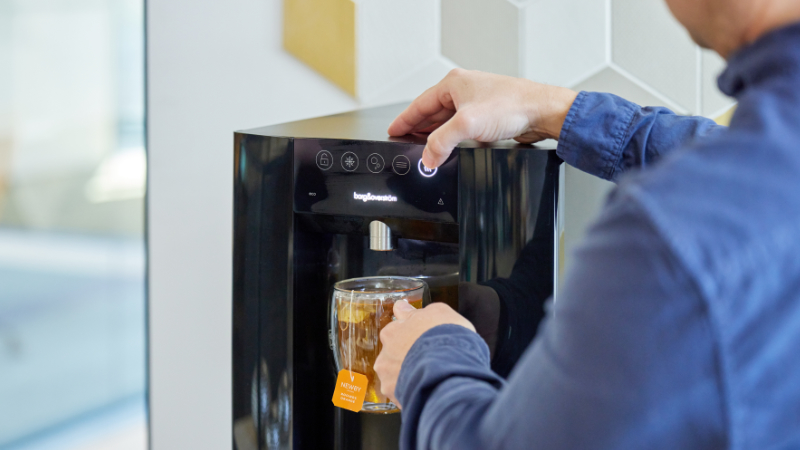How important is it to descale a hot tank?

As a nation of coffee and tea drinkers, there’s no better way to start the day than having a fresh hot beverage of your choice.
Now, with modern innovations and current water coolers easing convenience by providing instant hot water, no longer do we have to wait for that kettle to boil!
But just as we have to maintain our kettles with descaling solutions – removing the build-up of limescale after long-term use – we also need to make sure that the hot tank in our hot water dispenser or tap system is similarly well-maintained.
In this short guide, we explore ‘the why‘ and ‘the how‘ you should descale your hot tank – ensuring that your water stays fresh.
- Why should you descale a hot water tank?
- How often should you descale a hot water dispenser?
- How to descale a hot water dispenser
Why should you descale a hot water tank?
Whenever water is heated, scale deposits will occur. Depending on the type of water in your region – the hardness of water is determined primarily by the amount of calcium and magnesium it contains – you can expect to see higher deposits of limescale occur with harder water and higher temperatures.
Descaling your hot tank and removing these deposits will help to extend the service life of your water dispenser and can also help save on your electricity bill. Research shows that an element covered with limescale will use up to 10% more electricity than a clean one to produce the same amount of energy.
Although scale deposits can be reduced through using softened water this is not necessarily desirable due to the adverse effect on taste. Therefore, it is important that descaling is carried out regularly to maintain the high-efficiency of operation of your appliance.
How often should you descale a hot water dispenser?
The short answer: scale preventative measures should be completed when required, which on average, should be at least once every 12 months.However, the number of times you are required to clean your dispenser’s hot tank wholly depends on the type and hardness of the water in your area.
There are two types of hardness when it comes to water and these can change depending on your region:
- Soft water: water that is free from dissolved salts with a low mineral content, such as calcium, iron, or magnesium.
- Hard water: water that has a high mineral content and is formed when water percolates through deposits of limestone, chalk, or gypsum, which are largely made up of calcium and magnesium carbonates, bicarbonates, and sulphates.
Soft water removes the minerals that harden the water and can help reduce some limescale build up, extending the time period of any necessary descaling maintenance is required.
The frequency of maintenance can vary: if you live in an area with hard water, you may need to descale your hot tank more frequently than an area with soft water.
We recommend using this water checker to pinpoint the water type in your area.
How to descale a hot water dispenser
Descaling a dispenser is much like descaling a kettle, however, ensure that you follow the manual guide provided by your specific water dispenser manufacturing.
- Switch of the power and water supply
- Drain the water and empty the tank
- Fill up the tank with descaling solution (following the instructions on your descaling pack)
- Drain the descaling solution and empty the tank
- Flush water through the tank to ensure all the descaling solution is removed
- Allow the hot tank to refill with water
- Check for any leaks before switching on the power
As mentioned before, this is a brief summary of the typical steps followed to descale a water dispenser. You should always follow the directions and manuals of your specific provider.
Here at Borg & Overström, we provide a comprehensive library of resources to answer all your questions: explore our blog to see all the latest publications, or watch our how-to videos for further support on all Borg & Overström product features and applications.
If you’re left with any questions – contact us – our expert staff are ready and waiting to help you.
